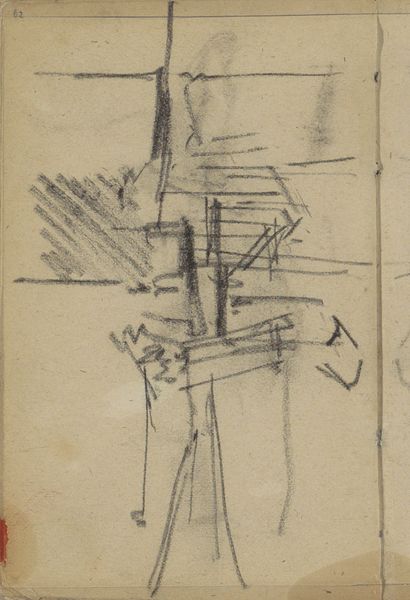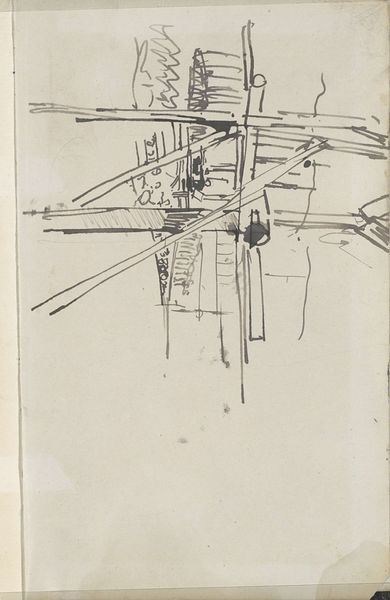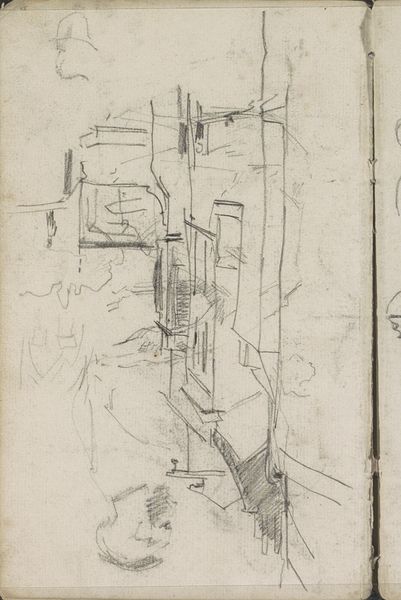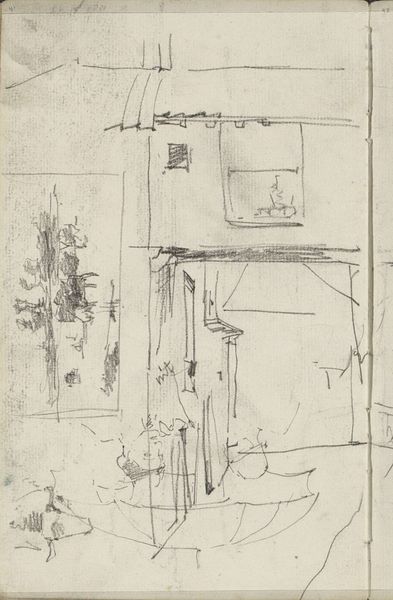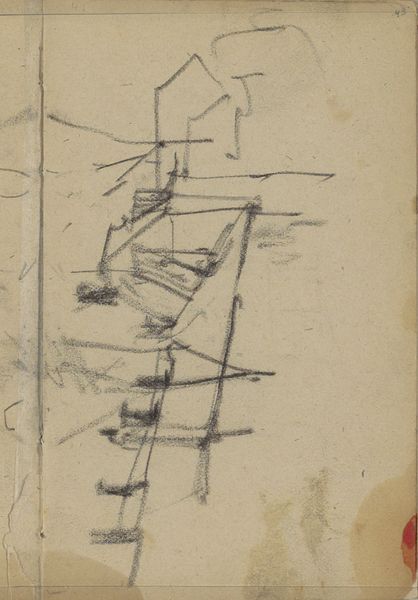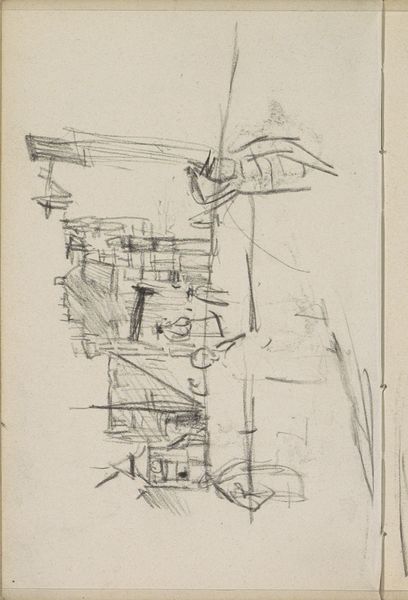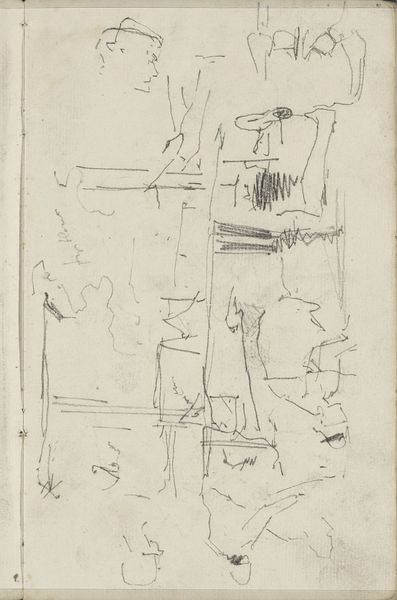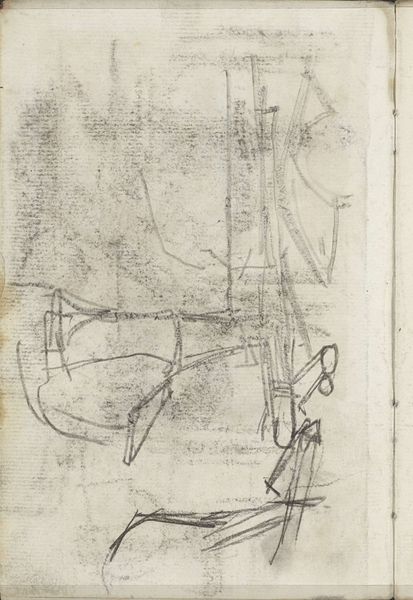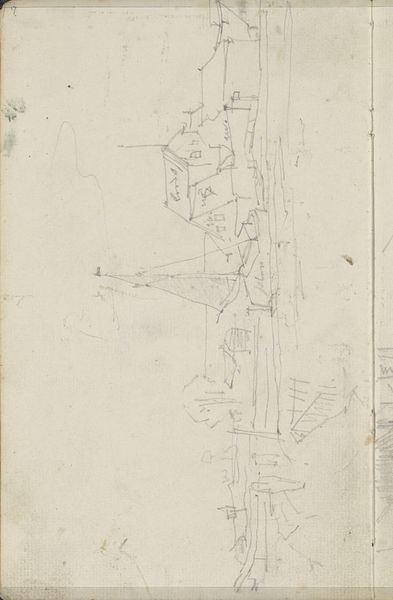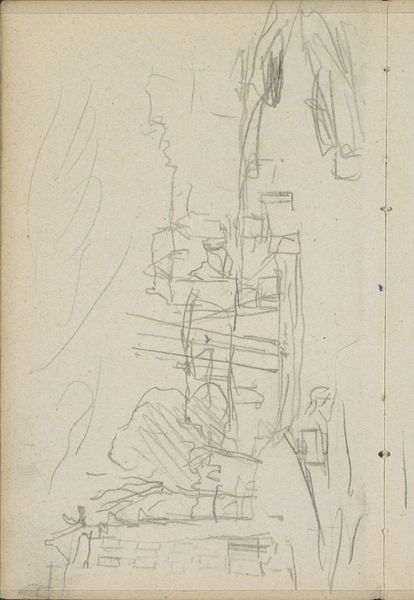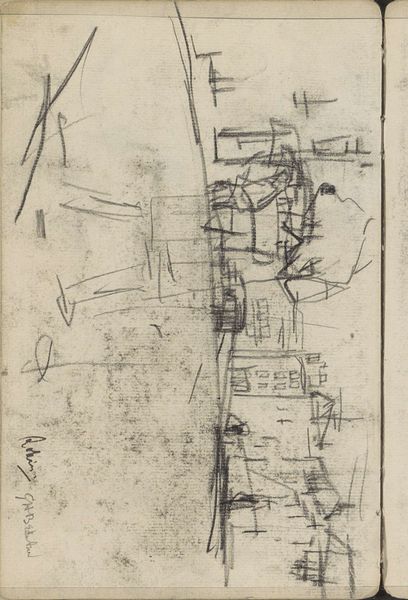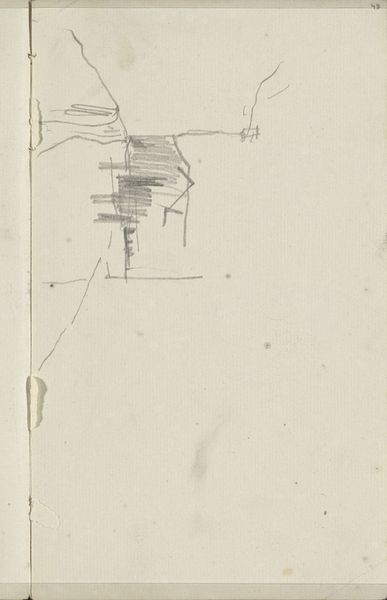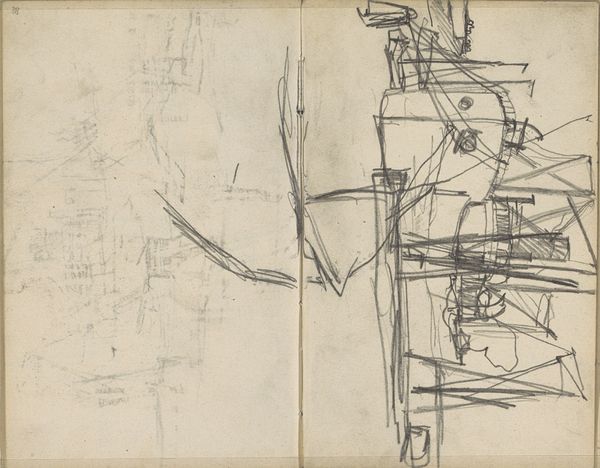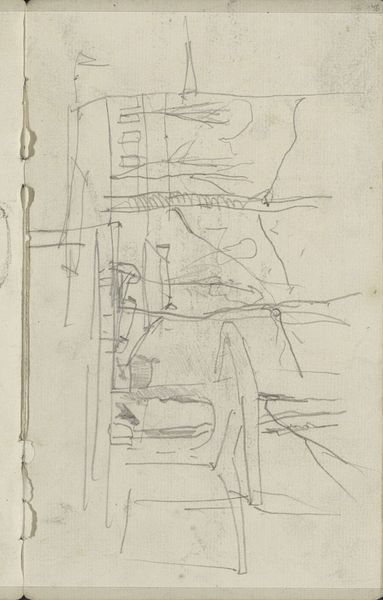
drawing, pencil
#
drawing
#
toned paper
#
quirky sketch
#
impressionism
#
pen sketch
#
sketch book
#
incomplete sketchy
#
landscape
#
personal sketchbook
#
sketchwork
#
sketch
#
pen-ink sketch
#
pencil
#
horse
#
sketchbook drawing
#
sketchbook art
Copyright: Rijks Museum: Open Domain
Curator: Here we have a sketch from George Hendrik Breitner's hand, titled "Paarden," dating from 1881 to 1883. It resides here at the Rijksmuseum, a compelling drawing executed with pencil on toned paper. What's your first reaction? Editor: Hmmm... a quick and rather frantic energy. Like a fleeting thought captured just before it vanished. Is it just me or do they look melancholic, maybe a little resigned? Curator: Well, Breitner, while often associated with Impressionism, carried a distinct weight in his realism, depicting Amsterdam's working classes and urban life without romanticism. This sketch likely wasn't meant for display, but as part of his process—observing the raw reality of horses in the city. Editor: Exactly. You get that raw, almost desperate energy! You see the underbelly of idealized equine beauty. Like seeing a supermodel without makeup—disarming! What was it about horses that artists kept fixating on in this period? Curator: Horses, of course, were ubiquitous, a source of power, transportation, and labor in urbanizing Europe. Breitner documented Amsterdam’s streets extensively, becoming deeply familiar with their daily struggles. Consider also the social dimension: horses, though vital, often faced terrible conditions. Their presence highlights the social commentary embedded in Breitner's broader oeuvre. Editor: It’s brilliant how he suggests movement with so few lines—a scribble here suggests the muscular form and mass—while simultaneously hinting at the heavy yoke that shaped their lives. A yoke felt but not seen...almost ephemeral, but really heavy. Curator: Precisely. It’s that tension between beauty and utility that marks Breitner's unique vision. These sketches highlight an intimacy lacking in some of his larger, more formal pieces. By engaging the public with these works, the Rijksmuseum invites reflection on the societal forces influencing not only Breitner’s art, but life itself. Editor: Seeing that intimacy… makes me think of him almost whispering to the paper, a secret shared only between artist and subject...and now, us. Curator: An eloquent interpretation, reflecting on art's public role, where personal connection encourages cultural consciousness, don't you think? Editor: Definitely. I feel richer for it.
Comments
No comments
Be the first to comment and join the conversation on the ultimate creative platform.
